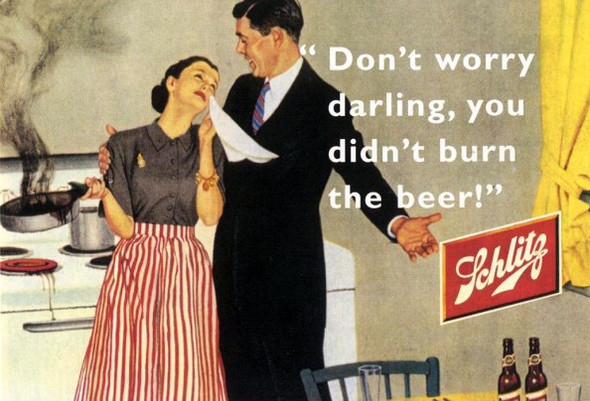 Mark Barret over at Ditchwalk penned an astute article on advertising. What he reveals in it is something so obvious that I’m thinking it gets overlooked. Anyway, I found it interesting even though I really do like the western bacon cheeseburger over at Carl’s Jr.
Mark Barret over at Ditchwalk penned an astute article on advertising. What he reveals in it is something so obvious that I’m thinking it gets overlooked. Anyway, I found it interesting even though I really do like the western bacon cheeseburger over at Carl’s Jr.
You’re watching TV. A commercial comes on for a product that is in no way related to sex. Despite the obvious disconnect the commercial itself is entirely about sex. You’re not surprised, of course, because there’s nothing new about this. Sex has been selling products other than sex since products other than sex have been sold. The current sex-obsessed Axe body spray commercials are simply an updating of the Hai Karate commercials of yesteryear. Granted, today’s commercials demonstrate a greater corporate tolerance for pseudo-pornographic content, but that’s primarily a function of the increased difficulty of attracting eyeballs in the digital age. We’re not looser than we used to be: we’re just more desperate for attention.
So sex sells. That’s nothing new. But the use of sex to sell nonsexual products is also a tell. To understand what you’re being told when you see sex in a commercial for a nonsexual product, you need to know Barrett’s First Law of Marketing:
When your product is indistinguishable from the competition, add sex.
Carl’s Jr., for example, feeds dead cows to their customers — as does Wendy’s, McDonalds and Burger King, to name the leading competitors in the beef category of the fast-food industry. In order to differentiate their brand and distract customers from the grisly reality of their business, Carl’s Jr. could tout the fact that they use a specific kind of dead cow, as with the Black Angus commercial war that broke out recently, or they could call attention to some other aspect of their food service. But all such product-related marketing choices would be shades of gray in a market category dominated by gray.
To get real brand recognition for an indistinguishable product in a generic market you need to do something radical — like mate a partially nude, gyrating, grinding, blond bimbo to a bucket of suds, so nature can take its course with whatever demographic (dad and his wallet) you’re trying to attract. That’s how everything from toasters to antiperspirant to shoes to cars to dental floss to insurance to fast food becomes steeped in curves and innuendo. It’s not that sex sells everything, it’s that sex helps sell stuff that otherwise cannot compete on its own merits.
Which leads us to the inverse of Barrett’s First Law of Marketing:
If sex is used to market a nonsexual product, that product is generic.
Any time you see sex added to a product that is not inherently sexual, you are being told by the company that makes the product that their product is not special or unique in any way. Axe body spray is no better than any other body spray. Carl’s Jr.’s dead cow is no better than anybody else’s dead cow.
This inherent revelation of mediocrity holds for all products in all markets. This includes movies, music, computer games and books.


